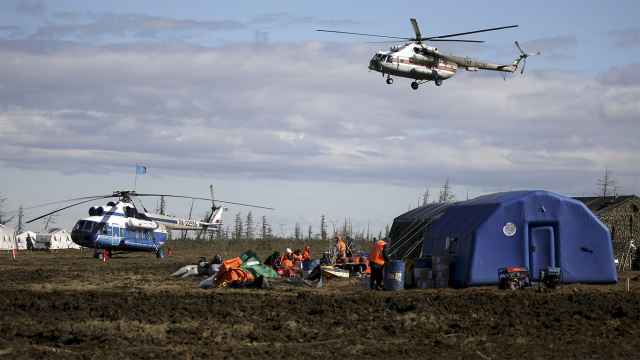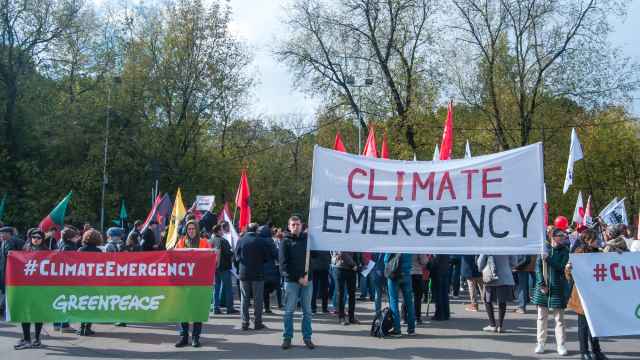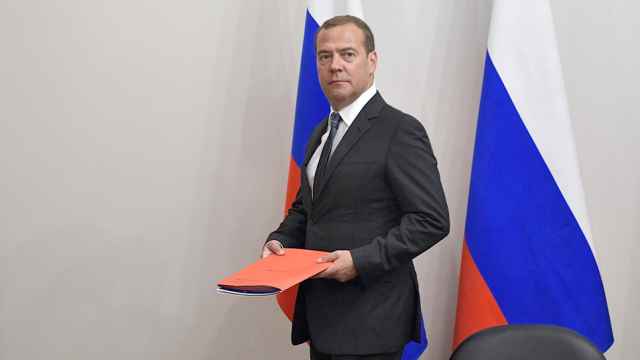The impact of Russia’s invasion of Ukraine on biodiversity and the climate was not part of the official agenda at two recent major UN environmental conferences, but on the sidelines of both the consequences of the war featured heavily. These discussions demonstrated that far from eclipsing the global environmental agenda, the war in Ukraine has in fact created a new set challenges and is forcing a reappraisal of the transition to renewables.
In the months following the invasion, it seemed that climate issues were slipping down the agenda and that the financing of programs to reduce emissions (primarily in developing countries) would be cut, partly due to a sharp increase in defense spending by Western countries, leading to a slowdown in decarbonization.
The recent summits, however, demonstrated that such fears were largely exaggerated. There is increasing talk of the interconnectivity between the war in Ukraine, climate change, issues of energy and food security, the destruction of ecosystems, and a reduction in biodiversity.
Some consequences of the war can be said to have impacted the climate agenda. Firstly, global energy markets are transforming: many countries have changed their oil and gas suppliers, and are hurriedly building infrastructure for liquefied natural gas, reopening coal-fired power stations, considering extending the lifespan of nuclear power stations (or building new ones), and investing in new fossil fuel projects.
The medium- and long-term trends, meanwhile, remain unchanged: the significance and share of renewable energy sources continue to grow. Investment in this sector is increasing, as is its role in the provision of energy security, and technologies are becoming cheaper and more effective.
Secondly, the war is refashioning global food and fertilizer markets. Multiple countries are now planning to expand grain production and the sourcing of raw materials for producing fertilizer, which represents a threat to ecosystems and biodiversity.
Thirdly, reductions in the supplies of metals from Ukraine, along with partial sanctions and limits on supplies from Russia, are transforming global metallurgy. Some of the changes impact the extraction of metals required for global decarbonization and the energy transition, including steel, aluminum, lithium, nickel, copper, and rare earth metals.
Sanctions and trade barriers have placed Russia’s climate policies in doubt, there's a discernable appetite for rowing back environmental legislation and for relaxing various other environmental rules and regulations.
Despite that, the Russian government continues to pass climate legislation and rules on carbon regulation, and new projects are being launched, such as an experiment with becoming carbon neutral by the end of 2025 on the island of Sakhalin in Russia's Far East.
Companies are standing by their emissions reduction targets and ESG (environmental, social, and governance) measures. Events devoted to the climate, decarbonization, and sustainable development are still held regularly, though the international focus has shifted to the experience of Asia, the Middle East, and the other BRICS nations.
At the COP27 UN climate conference in Egypt, representatives of Russian business — above all, atomic energy agency Rosatom — also spoke out against neocolonialism alongside representatives from the Global South. Employing rhetoric about the construction of a multipolar world, the Russian authorities attempted to bring non-Western countries over to their side, sometimes using the carrot of technological collaboration on green issues.
This amounts to a paradoxical situation, in which on the one hand, Russia is increasingly prone to anti-Western rhetoric and vocally advocates the need for a "sovereign green agenda," while on the other, condemning the exclusion of individual countries from the global climate dialog and calling for the lifting of sanctions and trade restrictions on low-carbon technologies and goods required for the energy transition.
Russia continues to stress the important role played by its ecosystems in solving climate and biodiversity issues, an emphasis that is routinely criticized by environmental experts who accuse Moscow of being reluctant to reduce its greenhouse gas emissions in other sectors or to develop its own renewable energy industry.
It’s worth noting as well that at COP27 Russia blocked mention of fossil fuel reduction or growing the share of renewable energy in the final communique, claiming its position stemmed from its support of developing countries.
Russia continues to support "technological neutrality," arguing that every country should have the right to decide for itself how to best reduce emissions. On Moscow’s part, this chiefly appears to entail developing nuclear and gas-powered energy and relying on its vast forests to absorb its emissions.
The recent UN summits demonstrate that Russia remains interested in green diplomacy, something it has been working on since 2014. Following the annexation of Crimea and the ensuing sanctions, the country’s representatives suddenly showed far more interest in the green aspects of international collaboration, seeing them as an opportunity to continue dialog while also gaining access to financing and new technologies.
Now, however, Russia’s problems accessing green technologies and international financing will only grow. Any new partners Moscow finds are likely to be more interested in gaining preferential access to Russia's natural resources than in high-tech collaboration on green development.
The Institute of Economic Forecasting, part of the Russian Academy of Sciences, predicts that Russia’s potential to reduce greenhouse gas emissions will have almost halved by 2050, mainly due to technological limitations. If true, that wouldn't necessarily prevent Russia from achieving carbon neutrality by 2060, which could happen as a result of economic recession.
A fall in GDP, a decrease in Russia’s share in the global economy, and depopulation could all significantly reduce Russia's greenhouse gas emissions. Indeed, we may see a repetition of the 1990s, when Russian emissions fell by over 30% — more than the amount required of Moscow under the Kyoto Protocol — due to a steep decline in industrial production following the collapse of the Soviet Union. But that can hardly be considered genuine decarbonization.
This article was originally published by The Carnegie Endowment for International Peace.
A Message from The Moscow Times:
Dear readers,
We are facing unprecedented challenges. Russia's Prosecutor General's Office has designated The Moscow Times as an "undesirable" organization, criminalizing our work and putting our staff at risk of prosecution. This follows our earlier unjust labeling as a "foreign agent."
These actions are direct attempts to silence independent journalism in Russia. The authorities claim our work "discredits the decisions of the Russian leadership." We see things differently: we strive to provide accurate, unbiased reporting on Russia.
We, the journalists of The Moscow Times, refuse to be silenced. But to continue our work, we need your help.
Your support, no matter how small, makes a world of difference. If you can, please support us monthly starting from just $2. It's quick to set up, and every contribution makes a significant impact.
By supporting The Moscow Times, you're defending open, independent journalism in the face of repression. Thank you for standing with us.
Remind me later.








